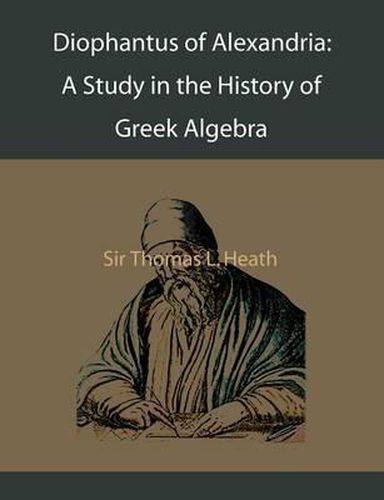Readings Newsletter
Become a Readings Member to make your shopping experience even easier.
Sign in or sign up for free!
You’re not far away from qualifying for FREE standard shipping within Australia
You’ve qualified for FREE standard shipping within Australia
The cart is loading…






Reprint. Paperback. 387 pp. Diophantus of Alexandria, sometimes called the father of algebra, was an Alexandrian mathematician and the author of a series of books called Arithmetica. These texts deal with solving algebraic equations, many of which are now lost. In studying Arithmetica, Pierre de Fermat concluded that a certain equation considered by Diophantus had no solutions, and noted without elaboration that he had found a truly marvelous proof of this proposition, now referred to as Fermat’s Last Theorem. This led to tremendous advances in number theory, and the study of diophantine equations ( diophantine geometry ) and of diophantine approximations remain important areas of mathematical research. Diophantus was the first Greek mathematician who recognized fractions as numbers; thus he allowed positive rational numbers for the coefficients and solutions. In modern use, diophantine equations are usually algebraic equations with integer coefficients, for which integer solutions are sought. Diophantus also made advances in mathematical notation. Heath’s work is one of the standard books in the field.
$9.00 standard shipping within Australia
FREE standard shipping within Australia for orders over $100.00
Express & International shipping calculated at checkout
Reprint. Paperback. 387 pp. Diophantus of Alexandria, sometimes called the father of algebra, was an Alexandrian mathematician and the author of a series of books called Arithmetica. These texts deal with solving algebraic equations, many of which are now lost. In studying Arithmetica, Pierre de Fermat concluded that a certain equation considered by Diophantus had no solutions, and noted without elaboration that he had found a truly marvelous proof of this proposition, now referred to as Fermat’s Last Theorem. This led to tremendous advances in number theory, and the study of diophantine equations ( diophantine geometry ) and of diophantine approximations remain important areas of mathematical research. Diophantus was the first Greek mathematician who recognized fractions as numbers; thus he allowed positive rational numbers for the coefficients and solutions. In modern use, diophantine equations are usually algebraic equations with integer coefficients, for which integer solutions are sought. Diophantus also made advances in mathematical notation. Heath’s work is one of the standard books in the field.